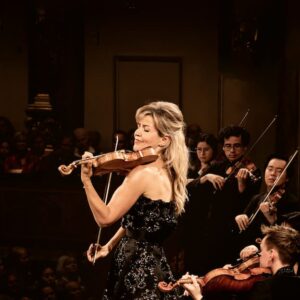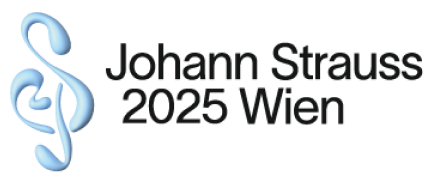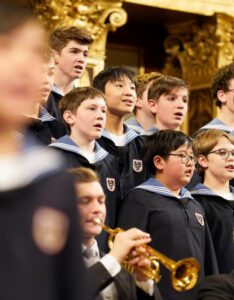
 CalendarProgramme
CalendarProgrammePodcast
DE
 CalendarProgramme
CalendarProgramme
The Vienna Boys' Choir is one of the most famous choirs in the world, and one of the oldest: the first reference to boys' choirs in Vienna Castle dates back to 1296. Two hundred years later, on 7 July 1498, the future Roman-German Emperor Maximilian I founded a chapel in Vienna in which boys were also to sing. This laid the foundation stone for the Vienna Boys' Choir. Like their modern-day successors, the boys were always ‘on the road’ with their imperial employer: they sang at imperial festivals, coronations, weddings, processions and court festivities. Over the centuries, the Viennese court attracted brilliant musicians such as Heinrich Isaac, Johann Josef Fux, Christoph Willibald Gluck and Wolfgang Amadeus Mozart. Joseph Haydn, Michael Haydn and Franz Schubert sang in the choir as boys; Anton Bruckner was their singing and piano teacher.
Today, the imperial ensemble has become a modern campus: The Vienna Boys' Choir is a private, non-profit organisation that is mainly financed by the income from concerts and tours and also relies on donations and sponsors. The association runs a music primary school and a grammar school specialising in vocal music; in addition to the four boys' choirs, there is the Chorus Primus, the mixed children's choir of the primary school, the Vienna Girls' Choir and the Chorus Juventus, the mixed youth choir of the upper school. A total of 330 boys and girls between the ages of six and nineteen attend the campus in Vienna's Augarten. They all have singing lessons and voice training, and all sing in one of the choirs. They learn how to be part of an open, inclusive community and how to reach people with their music. The training, which was recognised by UNESCO as a cultural heritage site in 2017, is accessible to everyone, regardless of origin, gender, nationality or religion.
The 90 currently active choirboys are divided into four boys' choirs. Together, they give almost 300 performances in front of half a million spectators all over the world: since 1924, they have sung around 29,000 concerts on more than 1,000 tours in 100 countries. On Sundays, they perform with members of the Vienna Philharmonic Orchestra and the Vienna State Opera Chorus in the Hofburg Chapel in Vienna, where Johanna Doderer's Peace Mass was recently premiered. The Vienna Boys' Choir can often be heard at major orchestral concerts under conductors such as Joana Mallwitz, Zubin Mehta, Riccardo Muti, Christian Thielemann and Simone Young. Highlights include performances at the Salzburg Festival and at the Vienna Philharmonic's New Year's Concert, most recently in 2023 under Franz Welser-Möst.
Social commitment plays a major role: collaborations with UNICEF, Licht ins Dunkel and the möwe child protection centres are a priority. In 2009, ‘superar’ was founded with Caritas Vienna and the Wiener Konzerthaus, an organisation that offers children free access to musical support. The Vienna Boys' Choir also runs the Chorus amabilis for amateur singing enthusiasts aged 16 and over, in which senior citizens also sing. Erasmus Baumgartner is the current artistic director of Campus Augarten. The conductors of the four boys' choirs are Manolo Cagnin, Jimmy Chiang, Manuel Huber and Oliver Stech.
The Vienna Boys' Choir is one of the most famous choirs in the world, and one of the oldest: the first reference to boys' choirs in Vienna Castle dates back to 1296. Two hundred years later, on 7 July 1498, the future Roman-German Emperor Maximilian I founded a chapel in Vienna in which boys were also to sing. This laid the foundation stone for the Vienna Boys' Choir. Like their modern-day successors, the boys were always ‘on the road’ with their imperial employer: they sang at imperial festivals, coronations, weddings, processions and court festivities. Over the centuries, the Viennese court attracted brilliant musicians such as Heinrich Isaac, Johann Josef Fux, Christoph Willibald Gluck and Wolfgang Amadeus Mozart. Joseph Haydn, Michael Haydn and Franz Schubert sang in the choir as boys; Anton Bruckner was their singing and piano teacher.
Today, the imperial ensemble has become a modern campus: The Vienna Boys' Choir is a private, non-profit organisation that is mainly financed by the income from concerts and tours and also relies on donations and sponsors. The association runs a music primary school and a grammar school specialising in vocal music; in addition to the four boys' choirs, there is the Chorus Primus, the mixed children's choir of the primary school, the Vienna Girls' Choir and the Chorus Juventus, the mixed youth choir of the upper school. A total of 330 boys and girls between the ages of six and nineteen attend the campus in Vienna's Augarten. They all have singing lessons and voice training, and all sing in one of the choirs. They learn how to be part of an open, inclusive community and how to reach people with their music. The training, which was recognised by UNESCO as a cultural heritage site in 2017, is accessible to everyone, regardless of origin, gender, nationality or religion.
The 90 currently active choirboys are divided into four boys' choirs. Together, they give almost 300 performances in front of half a million spectators all over the world: since 1924, they have sung around 29,000 concerts on more than 1,000 tours in 100 countries. On Sundays, they perform with members of the Vienna Philharmonic Orchestra and the Vienna State Opera Chorus in the Hofburg Chapel in Vienna, where Johanna Doderer's Peace Mass was recently premiered. The Vienna Boys' Choir can often be heard at major orchestral concerts under conductors such as Joana Mallwitz, Zubin Mehta, Riccardo Muti, Christian Thielemann and Simone Young. Highlights include performances at the Salzburg Festival and at the Vienna Philharmonic's New Year's Concert, most recently in 2023 under Franz Welser-Möst.
Social commitment plays a major role: collaborations with UNICEF, Licht ins Dunkel and the möwe child protection centres are a priority. In 2009, ‘superar’ was founded with Caritas Vienna and the Wiener Konzerthaus, an organisation that offers children free access to musical support. The Vienna Boys' Choir also runs the Chorus amabilis for amateur singing enthusiasts aged 16 and over, in which senior citizens also sing. Erasmus Baumgartner is the current artistic director of Campus Augarten. The conductors of the four boys' choirs are Manolo Cagnin, Jimmy Chiang, Manuel Huber and Oliver Stech.